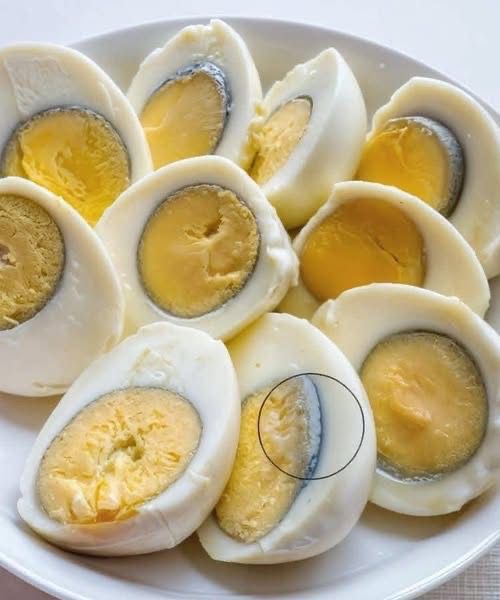
Perfect Boiled Eggs: A Complete Guide
Introduction
Boiled eggs are a timeless kitchen staple, enjoyed worldwide for their simplicity, nutrition, and versatility. Whether you like them soft-boiled with a runny yolk or hard-boiled for salads and snacks, mastering the perfect boiled egg is a cooking skill everyone should have.
In the image you shared, the eggs show a grey-green ring around the yolk — a common sign of overcooking. This guide will help you avoid that and cook eggs that look and taste amazing!
Ingredients
- 6 large eggs (adjust as needed)
- Water (enough to cover the eggs by at least 1 inch)
- Ice cubes (for an ice bath)
- 1 tsp salt (optional, helps prevent cracking)
- 1 tsp vinegar (optional, helps make peeling easier)
Instructions
** Preparation**
- Take the eggs out of the fridge and let them sit at room temperature for 5–10 minutes.
- Gently place the eggs in a single layer in a pot or saucepan.
** Boiling**
- Fill the pot with cold water, covering the eggs by about an inch.
- Add salt and vinegar if desired.
- Place the pot on the stove and heat over medium-high heat until the water comes to a rolling boil.
** Cooking Times**
Once the water boils, cover the pot with a lid and remove it from the heat:
- Soft-boiled (runny yolk): 4–5 minutes
- Medium-boiled (slightly jammy yolk): 7–8 minutes
- Hard-boiled (fully cooked yolk): 10–12 minutes
** Cooling**
- Prepare a large bowl of ice water while the eggs cook.
- When the timer goes off, immediately transfer the eggs to the ice bath.
- Let them sit for at least 5–10 minutes to stop cooking and make peeling easier.
** Peeling**
- Gently crack the shell on a hard surface.
- Roll the egg to loosen the shell.
- Peel under running water for best results.
Methods & Tips
Use older eggs for easier peeling.
Always start with cold water for even cooking.
Don’t overcook — the grey-green ring you see forms when sulfur in the egg white reacts with iron in the yolk.
Ice bath is crucial — it stops the cooking instantly.
History
Boiled eggs have been part of human diets for centuries. Ancient Romans, Egyptians, and Chinese people boiled eggs for religious rituals, offerings, and everyday meals. Today, boiled eggs are a breakfast icon, a protein-packed snack, and a picnic classic worldwide.
Benefits
- High in protein — great for muscle repair and energy.
- Full of vitamins B2, B12, D, and minerals like selenium and zinc.
- Low-calorie but filling.
- Portable, affordable, and convenient.
Formation
The egg white solidifies around 62–65°C (144–149°F) while the yolk firms up at 70°C (158°F). Cooking beyond this causes overcoagulation, leading to the grey ring and rubbery texture.
Nutrition (Per Large Hard-Boiled Egg)
- Calories: 70–80 kcal
- Protein: 6–7 grams
- Fat: 5 grams
- Carbohydrates: <1 gram
- Cholesterol: 186 mg
Lovers of Boiled Eggs
- Athletes for quick protein.
- Students for affordable nutrition.
- Busy parents for lunchboxes.
- Travelers for on-the-go snacks.
- Chefs for deviled eggs, salads, and ramen toppings.
Conclusion
Boiled eggs are one of the simplest yet most satisfying foods to master. With a few tweaks in timing and technique, you’ll never have to see that grey ring again. Enjoy your eggs fresh, flavorful, and cooked to perfection — every single time.